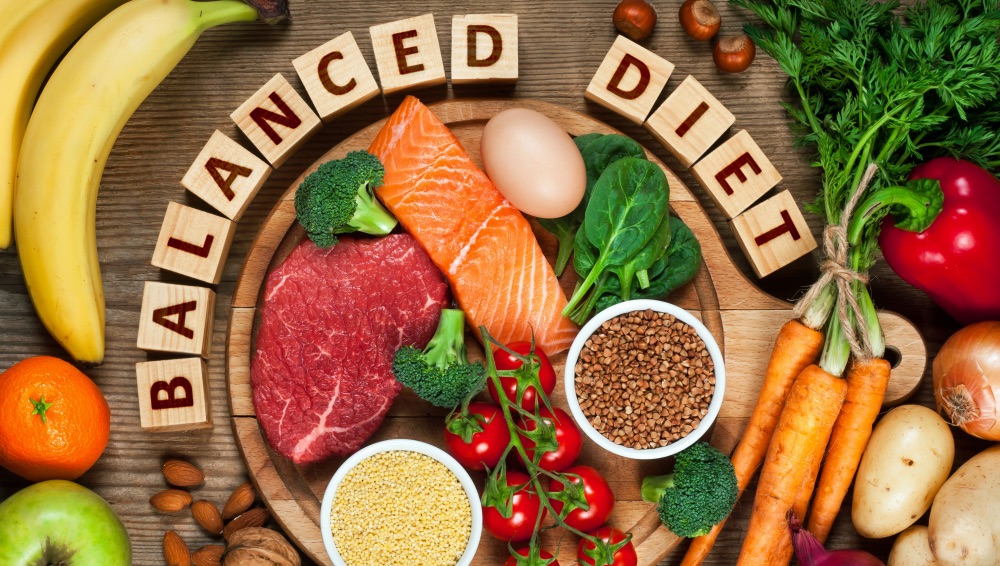Achieving sustainable weight loss isn’t about quick fixes or extreme diets—it’s about making smart, long-term changes that promote overall health and well-being. The science behind weight loss shows that success comes from a combination of balanced nutrition, consistent activity, and healthy habits that can be maintained over time. Here are nine science-backed strategies to help you lose weight in a sustainable way while improving your health and lifestyle.

1. Focus on Whole, Nutrient-Dense Foods
One of the smartest strategies for sustainable weight loss is prioritizing whole, nutrient-dense foods over processed options. Whole foods—such as fruits, vegetables, lean proteins, whole grains, and healthy fats—are rich in essential nutrients that support metabolism and overall health. Unlike processed foods, which are often high in calories and low in nutritional value, whole foods help you feel fuller for longer while fueling your body with what it needs. According to research from the Journal of Nutrition, diets rich in whole foods are associated with improved weight management and reduced risk of chronic diseases.

2. Practice Portion Control
Portion control is a key factor in achieving and maintaining a healthy weight. Even healthy foods can contribute to weight gain if consumed in large quantities. Being mindful of portion sizes helps you control calorie intake without depriving yourself of the foods you love. Using smaller plates, paying attention to hunger cues, and avoiding distractions while eating can help you better regulate portions. Research suggests that people tend to eat more when served larger portions, so practicing portion control can significantly aid in weight loss efforts.

3. Stay Consistent with Physical Activity
Regular physical activity is essential for sustainable weight loss, not just for burning calories but also for maintaining muscle mass and boosting metabolism. Aim for a combination of cardiovascular exercises, such as walking or cycling, and strength training to build muscle, which burns more calories even at rest. The American Heart Association recommends at least 150 minutes of moderate-intensity aerobic activity or 75 minutes of vigorous activity per week, along with muscle-strengthening exercises twice a week.

4. Prioritise Sleep for Weight Loss
Sleep plays a critical role in weight management. Poor sleep disrupts hormones that regulate hunger and satiety, leading to increased cravings and overeating. A study published in The Annals of Internal Medicine found that individuals who get adequate sleep are more likely to lose body fat and maintain lean muscle mass compared to those who are sleep-deprived. Aim for 7–9 hours of quality sleep per night to support your weight loss journey.

5. Manage Stress Levels
Chronic stress can sabotage weight loss efforts by increasing cortisol levels, which can lead to weight gain, especially in the abdominal area. Stress also triggers emotional eating and cravings for unhealthy, high-calorie foods. Incorporating stress-reduction techniques such as yoga, meditation, deep breathing, or regular physical activity can help lower cortisol levels and promote healthier eating habits. Managing stress is not only important for your overall health but also a key factor in achieving sustainable weight loss.

6. Drink Plenty of Water
Staying hydrated is essential for weight loss, as water plays a role in digestion, metabolism, and appetite regulation. Drinking water before meals can help reduce hunger and prevent overeating, while replacing sugary drinks with water reduces unnecessary calorie intake. A study in Obesity found that individuals who drank water before meals lost significantly more weight than those who didn’t. Aim for at least 8 glasses of water a day to support weight loss and overall health.

7. Eat Protein-Rich Meals
Protein is a crucial nutrient for weight loss because it helps maintain muscle mass, boosts metabolism, and promotes satiety. Including a source of lean protein in every meal, such as chicken, fish, beans, or tofu, can help you feel fuller for longer, reducing the urge to snack between meals. Protein also requires more energy to digest compared to fats and carbohydrates, making it an efficient way to support weight loss. Research from the American Journal of Clinical Nutrition highlights the effectiveness of high-protein diets in promoting fat loss and preserving muscle mass during weight loss.

8. Avoid Crash Diets and Fad Trends
Crash diets and extreme weight loss programs may offer short-term results, but they are rarely sustainable and can lead to muscle loss, nutrient deficiencies, and a slowed metabolism. Fad diets often involve restrictive eating that is difficult to maintain, leading to weight regain once normal eating patterns resume. Instead, focus on creating balanced, healthy eating habits that you can sustain long-term. A study in the Journal of Obesity confirms that gradual, steady weight loss is more effective and sustainable than rapid weight loss.

9. Be Patient and Consistent
Sustainable weight loss takes time and requires patience and consistency. It’s important to set realistic goals and avoid expecting drastic changes overnight. Weight loss should be viewed as a gradual process of adopting healthier habits that you can maintain for life. Celebrate small victories along the way and focus on overall progress, not just the number on the scale. Research shows that people who lose weight gradually and consistently are more likely to maintain their results over the long term.
Summary: The Science of Slim
Sustainable weight loss is achievable through smart, science-backed strategies that promote lasting health and wellness. By focusing on whole foods, regular physical activity, quality sleep, stress management, and portion control, you can make long-term changes that lead to a healthier, slimmer you. Remember, there are no quick fixes—patience, consistency, and a balanced approach are the keys to achieving and maintaining your weight loss goals.







